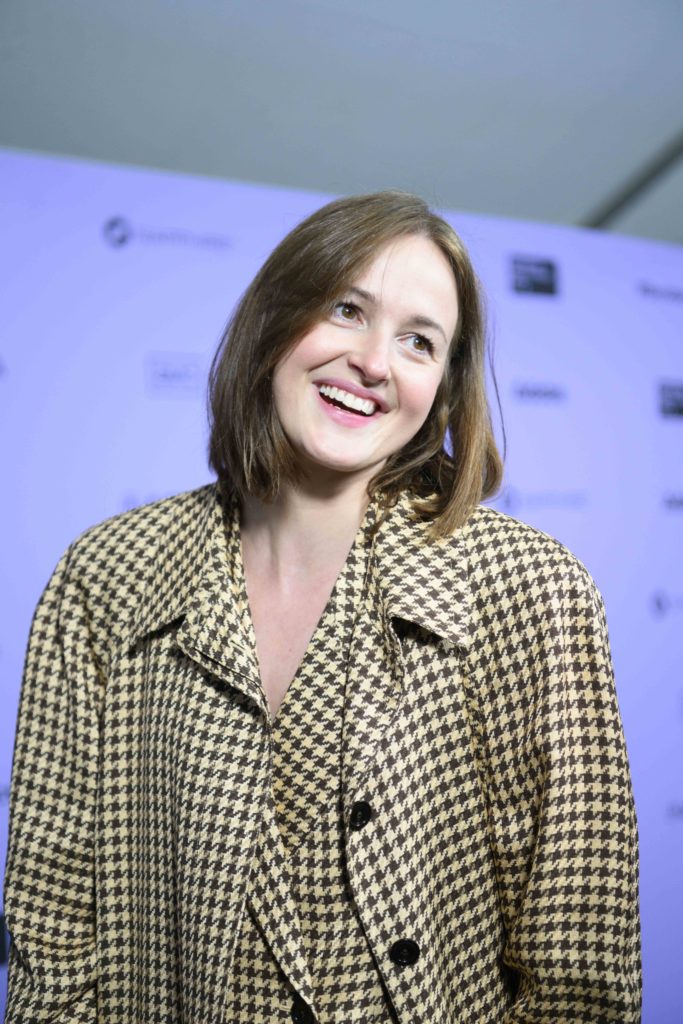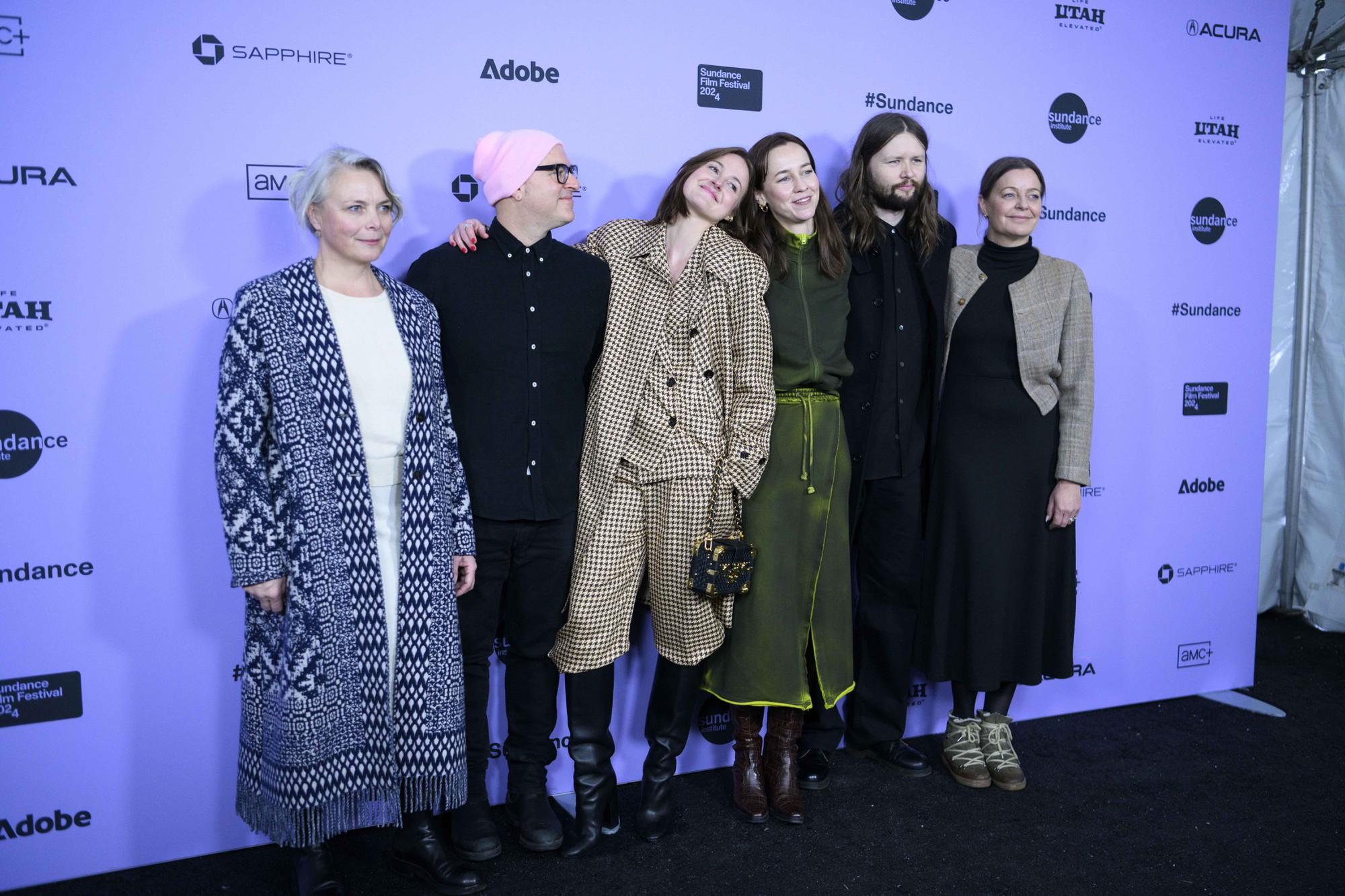Sundance 2024 Q&A: Thea Hvistendahl, Renate Reinsve reawaken horror in ‘Handling the Undead’
The cast and crew of “Handling the Undead” pose for a group photo on the red carpet. The mystery-horror film premiered at this year’s Sundance Film Festival. (Julia Zhou/Assistant Photo editor)
By Graciana Paxton
Jan. 30, 2024 12:41 p.m.
“Handling the Undead” unearths a new kind of zombie tale.
Adapted from the novel of the same name by John Ajvide Lindqvist, the mystery-horror film follows three families who must reckon with the unsettling, sudden return of their loved ones from the dead. Rather than shock or spook, the Norwegian film primarily seeks to explore the quiet tragedy of this unsettling, supernatural situation.
Director and co-writer Thea Hvistendahl and star Renate Reinsve spoke with the Daily Bruin’s Graciana Paxton at the Sundance Film Festival about balancing the film’s tone and genre and its atypical exploration of death, loss and grief.
This interview has been edited for length and clarity.
[Related: Sundance 2024: Alumnus Michael Fitzgerald talks progress in representing disability on screen]
Daily Bruin: What first drew you to the script and this film?
Renate Reinsve: I knew “Let the Right One In,” the Swedish movie, and it’s the same writer, so I knew that I was going into social realism with this fantastical element. And then, when I was rehearsing for the audition, it was so hard to read it because it was so so sad and really heartbreaking. So, I don’t know how well I knew my lines for the audition, but I connected a lot to the character and the story and the handling of grief and love that the movie talks about.
DB: In portraying the deep sadness your character experiences, how did you balance that tragedy with the horror mystery elements of the film?
RR: That’s a good question because it is a balance. It’s very hard to know how much to be attached to the genre because you, as an actor, need to move it forward – the suspense and the tension of the scene – but you also have to find as much nuance and detail in the scene as possible, but it was always about finding that balance.

DB: When working with Lindqvist to adapt his novel, were there any personal conversations about grief or loss of a loved one that came up or informed the script?
Thea Hvistendahl: A lot of the stuff, of course, comes from the book, but for me, it was also about how I’ve seen people wanting to bring the past back and getting lost in that process, instead of appreciating what we have now and how looking backwards can kind of ruin what you have here in this life at this moment so I think that’s how I connected it to myself.
[Related: Film review: Opulent aesthetics can’t save ‘Saltburn’ from narrative vacuity]
DB: In presenting a story that seeks to be both eerie and moving, what do you hope audiences take away emotionally?
TH: I hope that they’re a bit tense and they feel this unsettled atmosphere. But also, of course, I’d like them to go out of the cinema feeling love and that they want to appreciate the ones that have their life while they have them.
RR: For me, the movie really is about how hidden big emotions can be from ourselves, even in big situations or big events in life. But the only way is to go through that. The struggle to find that and to accept what you’re going through is so profound and universal, and I really hope that people can connect to that and also enjoy the genre. It’s almost like a meditation on grief and sorrow and love in the film Thea made.
